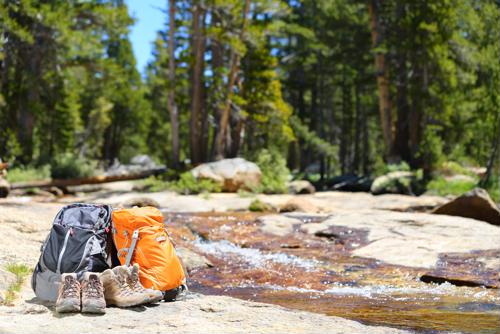Water rights are the legal permissions to use water from a specific source, like a river, lake, or well. They decide who can access the water, how much they can use, and for what purpose. This might sound straightforward, but it is a big deal when buying land because water access can shape how you use the property.
Think about land meant for farming, building a home, or even just fishing and boating. Understanding water rights helps you determine what is possible. At Mossy Oak Properties, we guide buyers through these details, so you are not left wondering what you can and cannot do with the water on or near your land.
Types of Water Rights
Riparian Rights
These rights go to landowners whose property touches a water source, like a stream or river. If your land runs alongside a river, you can use that water for things like watering crops or keeping livestock healthy. The catch is you can not use it all. Other people downstream have rights, too.
Prior Appropriation
Prior appropriation works on a “first come, first served” basis and is common in drier areas. If someone started using a water source for farming or another purpose before you, they get priority, even if your land is closer. It is a bit like calling dibs, but with legal paperwork backing it up.
Groundwater Rights
If you have water under your property, like in a well, groundwater rights allow you to use it. These are important for rural properties where a well might be the only water source. But there are limits, and local rules can shape how much you are allowed to draw.
Why Water Rights Matter
Water rights make a big difference in how land can be used and enjoyed. If you are buying farmland, you need water for irrigation and livestock. Without secure access, the land’s farming potential could take a hit.
For recreational land, water rights provide opportunities for fishing, swimming, or boating. Properties with easy access to lakes, streams, or rivers often attract buyers looking for a mix of utility and fun. These features can make your land more appealing, both for living on and for selling later.
Water rights also play a role in property development. Whether you are building a home, setting up utilities, or expanding an existing structure, reliable water access is a must. Ignoring water rights when buying land can lead to legal headaches or limited options down the road. Knowing where you stand helps avoid surprises and keeps things running smoothly.
Challenges with Water Rights
| Challenge | Tips to Address It |
| Conflicts with neighboring landowners | Talk to neighbors early and clarify boundaries. |
| Seasonal water shortages | Look into backup options like storage tanks or wells. |
| Drought-related access restrictions | Understand local water rules before buying. |
| Complicated legal frameworks | Get advice from a water rights lawyer. |
| Limited water availability | Check the sustainability of the water source. |
| Missing or unclear rights in records | Double-check property deeds and legal documents. |
| State or regional regulations | Research how local policies could impact water use. |
| Old disputes over prior rights | Work with experts to verify claims and history. |
How to Verify Water Rights Before Buying Land
If you are considering a piece of land, do not skip checking its water rights. Start by reviewing the property deed. This document usually spells out what water rights come with the land, whether it is for a well, a river, or some other source.
It is also smart to check with local water agencies. They can confirm the details and tell you about any restrictions. If things still feel unclear, getting advice from a real estate attorney who knows water rights can save you from future headaches. Having a clear picture of the water situation helps you make a confident decision.
Water Rights and Property Value
Water rights can add a lot of value to land. Properties with reliable water access are in high demand because they open the door for more uses. Farmland, for example, becomes more productive when irrigation is an option, making it attractive to buyers who need water to grow crops or raise animals.
Recreational land benefits, too. A piece of property with lake or river access is ideal for activities like boating or fishing. It is no surprise that properties with water rights often sell faster and at higher prices. Whether you are buying for personal use or as an investment, water rights make a big difference in what you can do with the land and how much it’s worth.
How Mossy Oak Properties Supports Buyers
Water rights can feel like a tricky subject, but having someone to walk you through the details makes things easier. We take the time to dig into each property and explain how its water access works, so you know what you are getting.
Whether it is farmland with plenty of water for crops, a fishing spot by the lake, or a piece of land for your future home, we help match buyers with properties that make sense for their plans. With us, it is not about rushing decisions. It is about making sure you feel comfortable and confident in your choice.


